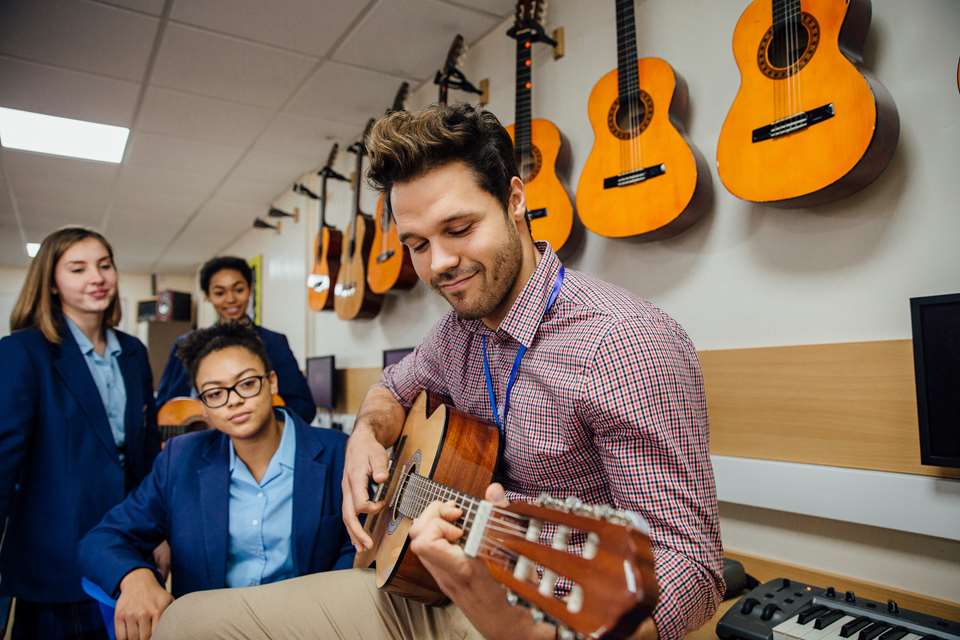Report finds 42% of state schools no longer entering students for GCSE Music
Michael Pearce
Wednesday, May 22, 2024
Cultural Learning Alliance highlights long-term falls in exam entries, teacher recruitment and extra-curricular engagement

Adobe Stock / AnnaStills
Data gathered by the Cultural Learning Alliance has identified that 42% of state-funded schools in England ‘no longer enter any pupils for Music GCSE’.
The figure forms part of a bleak picture for music presented in the first CLA annual Report Card, which summarises key arts education data on English secondary schools over the past 14 years.
A-Level Music entries decreased by 43% between 2010 and 2023, with the number of hours taught at KS5 falling by 36% since 2011. Meanwhile, GCSE Music entries dropped to less than 5,000, signalling a decline of 43%.
In the same period, the vacancy rate for secondary music teachers increased sixfold, perpetuated by a fall in music teacher recruitment of 56%.
The report places the blame for the decline in arts participation on the introduction of the EBacc and Progress 8 accountability measures, introduced in 2010 and 2016 respectively.
In the report’s Foreword, CLA co-chairs Sally Bacon OBE and Derri Burdon describe ‘a stark picture of erosion and equality’, adding: ‘The decline has been driven primarily by a government focus on a narrow range of subject areas and therefore a systemic downgrading or exclusion of arts subjects and experiences.
‘Despite all that is known about the value of arts subjects for children and young people, there has been a lack of value ascribed to the arts within the state education system in England.’
The report also presents evidence of an ‘enrichment gap’, with young people from wealthier backgrounds having far greater access to extra-curricular arts opportunities compared to their peers from lower-income backgrounds.
Highlighting the gulf in provision between independent and state schools, the report explains how independent schools in London have 59 theatres between them, while the West End has only 42.
Between 2022 and 2023, cuts to school trips in state schools more than doubled, rising to 68% in schools with the most disadvantaged cohorts.
On the back of the findings, the CLA has proposed a blueprint ‘to rebuild and sustain a more equitable and inclusive arts-rich education’, including a minimum four-hour arts entitlement within the school week and a complete reform of the school accountability system.
The CLA Report Card was written by Baz Ramaiah, CLA Policy Associate and Head of Policy at the Centre for Education and Youth, with evidence drawn from DfE data sets as far as possible.






